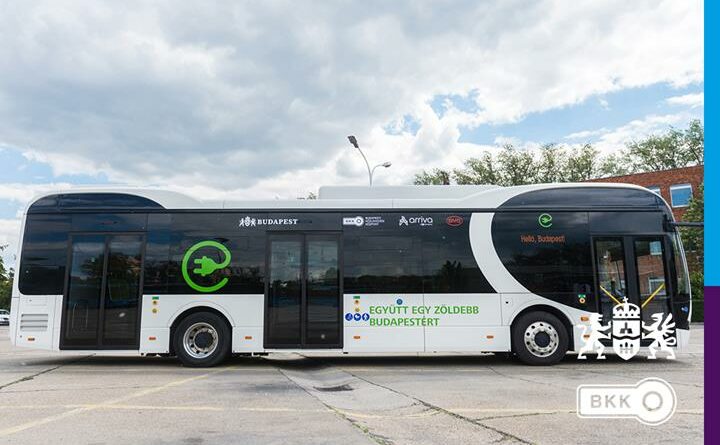Change language:
Important milestone in Budapest’s public transport: new electric buses to come

The Budapest Public Transport Centre (BKK) has signed 12-year contracts with ArrivaBus to put 70 new electric buses by BYD into service from spring 2026.
70 + 30 new electric buses will carry passengers in Budapest
ArrivaBus will be in charge of the operation and maintenance of the buses, employing drivers and providing charging infrastructure, the Hungarian News Agency reported.
According to the Budapest Transport Centre, the environment-friendly vehicles will be modern, low-floor, purely electric, and air-conditioned. Based on the plans, they will carry passengers in busy downtown lines.

Out of the 70 buses, 50 will be solo, while 20 will be articulated. ArrivaBus, which won the relevant tender in October and December, will provide BYD buses. They hope serving downtown routes with purely electric vehicles will help improve the capital’s air quality. Furthermore, the aim is to help meet the city’s climate goals and make Budapest more resistant to the consequences of climate change.
Interestingly, ArrivaBus wrote in their Facebook post that they will supply Budapest with 82 electric buses and open a new era in the capital’s public transport system. They added that Budapest will be the first European capital to run buses with the so-called “Blade Battery Technology”. ArrivaBus wrote that passengers could travel on the new buses from early 2026.
The goal is zero-emission
Budapest’s local government and the BKK are determined to operate sustainable public transport in Budapest.
ArrivaBus has been supplying 240 buses for Budapest’s public transport fleet since 2015. Based on the current contract, ordering 30% more buses is an option for Budapest. If the capital does so, 10% of its bus fleet will be purely electric.
Budapest prefers zero-emission vehicles both in the trolley and the bus segments. That is how the capital would meet the European Commission’s Green Deal goals, envisioning a carbon-neutral European Union by 2050.
As a result, they plan to acquire 20 more purely electric midi buses, and the relevant public procurement process is already in progress.
Thanks to the gradual development of Budapest’s bus fleet, passengers can only meet low-floor buses in the capital. However, the number of buses older than 18 is still almost 200.
New trams and trolley buses
In the last few years, 51 low-floor, air-conditioned CAF trams arrived with the help of EU funds, and the BKK is already working on a new tender to acquire 100 more modern trams. Provided they have the financial background, BKK can welcome 160 modern, environment-friendly, low-floor trolley buses.
The first new CAF tram arrived in Budapest yesterday:
Investments set to boost Alstom bogie frame capacity in Hungary
A HUF 6bn investment programme that is winding down at French rolling stock maker Alstom’s bogie frame plant in Mátranovák (Northeast Hungary) will boost capacity there by 40pc, Gaspar Balazs, in charge of the company’s local operations, said at an industry conference.
In a few years, the Mátranovák plant could account for one-third of Alstom’s bogie frame capacity worldwide, Balazs said in a statement issued by the company on Thursday.
This year, the base will turn out 1,600 bogie frames.
Read also:











